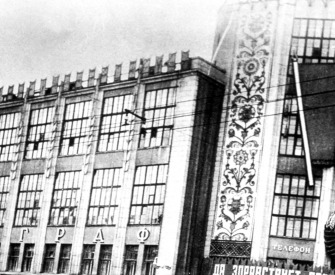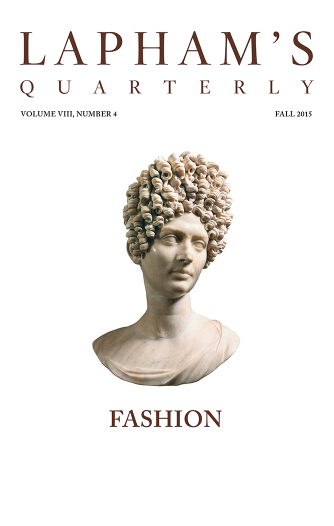Memory is necessary for all operations of reasoning.
—Blaise Pascal, 1658Post-Impressionism
Mary Antin looks back on her childhood.
My father and mother could tell me much more that I have forgotten, or that I was never aware of, but I want to reconstruct my childhood from those broken recollections only which, recurring to me in after years, filled me with the pain and wonder of remembrance. I want to string together those glimpses of my earliest days that dangle in my mind, like little lanterns in the crooked alleys of the past, and show me an elusive little figure that is myself, and yet so much a stranger to me that I often ask, Can this be I?
I have not much faith in the reality of my first recollection, but as I can never go back over the past without bringing up at last at this somber little scene, as at a door beyond which I cannot pass, I must put it down for what it is worth in the scheme of my memories. I see, then, an empty, darkened room. In the middle, on the floor, lies a long shape covered with some black stuff. There are candles at the head of the shape. Dim figures are seated low, against the walls, swaying to and fro. No sound is in the room except a moan or a sigh from the shadowy figures; but a child is walking softly around and around the shape on the floor in quiet curiosity.
The shape is the body of my grandfather laid out for burial. The child is myself—myself asking questions of Death.
I was four years old when my mother’s father died. Do I really remember the little scene? Perhaps I heard it described by some fond relative, as I heard other anecdotes of my infancy and unconsciously incorporated it with my genuine recollections. It is so suitable a scene for a beginning: the darkness, the mystery, the impenetrability. My share in it, too, is characteristic enough, if I really studied that shape by the lit candles, as I have always pretended to myself. So often afterward I find myself forgetting the conventional meanings of things, in some search for a meaning of my own. It is more likely, however, that I took no intellectual interest in my grandfather’s remains at the time, but later on, when I sought for a first recollection, perhaps, elaborated the scene, and my part in it, to something that satisfied my sense of dramatic fitness. If I really committed such a fraud, I am now well punished by being obliged, at the very start, to discredit the authenticity of my memoirs.
The abode of our childhood, if not revisited in later years, is apt to loom in our imagination as a vast edifice with immense chambers in which our little self seems lost. Somehow I have failed of this illusion. My grandfather’s house, where I was born, stands, in my memory, a small, one-story wooden building, whose chimneys touch the sky at the same level as its neighbors’ chimneys. Such as it was, the house stood even with the sidewalk, but the yard was screened from the street by a board fence, outside which I am sure there was a bench. The gate into the yard swung so high from the ground that four-footed visitors did not have to wait till it was opened. Pigs found their way in and were shown the way out under the gate, grunting on their arrival but squealing on their departure.
Of the interior of the house, I remember only one room, and not so much the room as the window, which had a blue sash curtain, and beyond the curtain a view of the narrow, walled garden, where deep-red dahlias grew. The garden belonged to the house adjoining my grandfather’s, where lived the gentile girl who was kind to me.
Concerning my dahlias I have been told that they were not dahlias at all, but poppies. As a conscientious historian, I am bound to record every rumor, but I retain the right to cling to my own impression. Indeed, I must insist on my dahlias if I am to preserve the garden at all. I have so long believed in them that if I try to see poppies in those red masses over the wall, the whole garden crumbles away and leaves me a gray blank. I have nothing against poppies. It is only that my illusion is more real to me than reality. And so do we often build our world on an error and cry out that the universe is falling to pieces if anyone but lift a finger to replace the error by truth.

Mary Antin
From The Promised Land. Born in Russia in 1881, Antin immigrated to Boston with her family in 1894. Five years later, at the age of eighteen, she published From Plotzk to Boston, a collection of letters she wrote her uncle in Yiddish during the family’s journey. She followed it with The Promised Land in 1912, an account of her upbringing and assimilation that received critical acclaim and led to a successful career as a lecturer on immigration. She died in 1949 at the age of sixty-seven.


